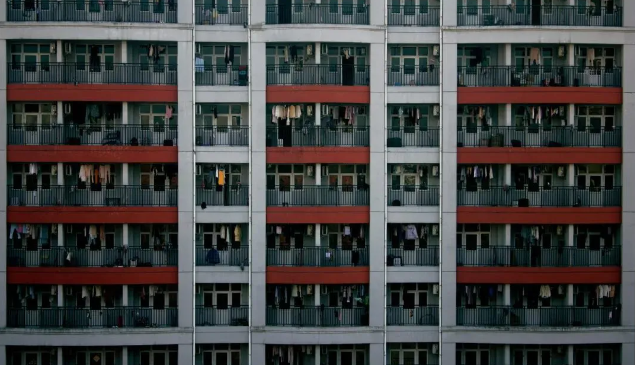Young People in China Face Job-Hunting Challenges, Leading to a Surge in Graduate Applicants and Resulting in Insufficient Dormitory Space
Many universities have already built new campuses outside their old ones, but as time goes by, these suburban new campuses are also overwhelmed. When both new and old campuses are operating at “full capacity,” where should schools and students turn?
Introduction
- In 2019, Fudan University and Tongji University almost simultaneously reached out to the dormitory-style long-term rental apartment company where Lin Fan works, hoping to rent apartments for graduate and international students. Over the next few years, a total of 7 universities in Shanghai alone have communicated their intentions to rent long-term apartments for dormitory use.
- Including Shanghai Songjiang University Town, Fengxian University Town, Beijing Liangxiang Higher Education Park, Beijing Changping Shahe Higher Education Park, and Nanjing Xianlin University Town, all were built between 2000 and 2005. Nearly 20 years have passed, and these new campuses are almost at “full capacity.”
- Universities that have already published their 2024 enrollment brochures, such as Peking University, Beijing Normal University, Nanjing University, Nankai University, and Fudan University, have clearly stated that they will no longer provide dormitories for professional master’s students.
- In some European countries, the investment and operation of student apartments are an important sector for long-term rental apartment companies, but in China, this business model has not yet attracted sufficient capital attention.
On February 26th, the initial test scores for the 2024 national postgraduate entrance examination were released.

Many candidates began preparing for the re-examination. Gu Ming, a first-year graduate student at Beijing Normal University, is also busy preparing to tutor candidates with high scores for the re-examination. Despite the tight schedule in the first year of graduate school, Gu Ming, like many of his peers, started part-time jobs shortly after entering graduate school.
Since 2014, Beijing Normal University has not provided dormitories for some specialized master’s students, and after 2020, this scope was expanded to include all professional master’s students at the Beijing campus of Beijing Normal University. Those who are admitted to professional master’s programs need to find their own accommodation, though they had anticipated this, many students choose to work part-time to alleviate financial burdens.
“Single rooms near the school, shared rent prices range from 2,000 to 4,500 yuan. A 2,000 yuan single room can barely fit a bed, making it difficult to even walk around.” Gu Ming chose a three-bedroom shared apartment that costs over 3,000 yuan/month, and with living expenses, spends nearly 6,000 yuan a month, six times the annual tuition fee.
In recent years, more and more universities have proposed no longer providing dormitories for non-full-time, job-oriented, or some specific majors’ master’s students. Some schools have begun not to provide on-campus dormitories for full-time professional master’s students, including well-known universities such as Peking University, Fudan University, Nankai University, Beijing Normal University, and Nanjing University.
According to data released by the Ministry of Education, the number of graduate students enrolled nationwide was 667,100 in 2016, and the number of graduate students enrolled expanded to 1,242,500 in 2022, nearly doubling. In 2022, the number of graduate students in China reached 3.65 million, ranking second in the world in total size.
Many universities have already built new campuses outside the old ones, but over time, these suburban new campuses have also become overwhelmed. When both new and old campuses are already operating at “full capacity,” where should schools and students turn?